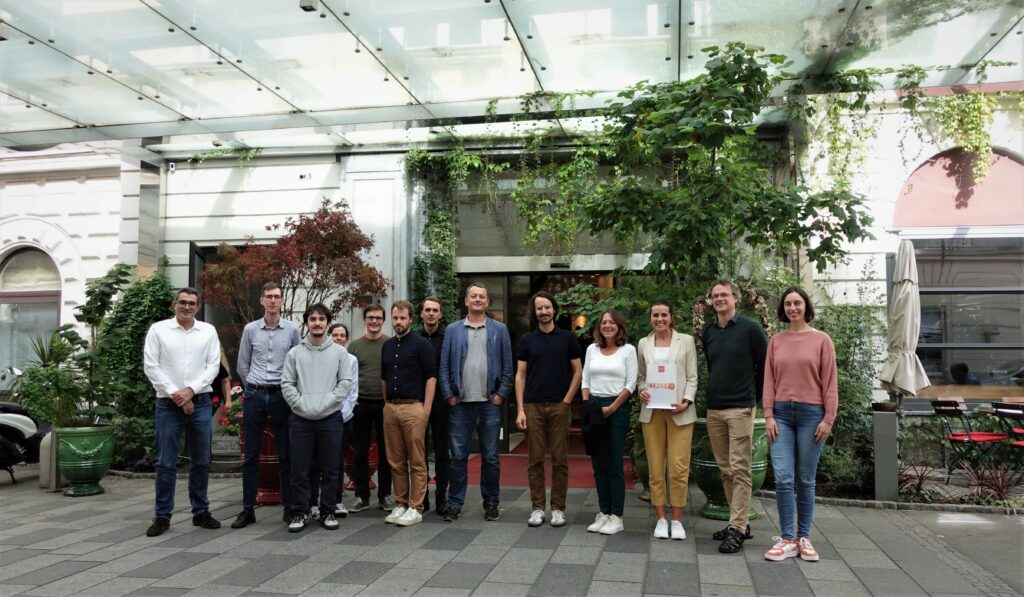The 10th General Assembly meeting, hosted by the Graz University, took place in Graz on the 10-11th of October 2023. The meeting brought together 15 participants from all partners to discuss the progress towards the development of a new type of chemical reactor inspired by the way in which living systems manage to modulate catalytic activity.

The CLASSY partners pictured at the 10th General Assembly in October 2023 at Graz
Prof. Wolfgang Kroutil, Dr. Christoph K. Winkler, Dr. Mathias Pickl and Mr. Stefan Simic from University of Graz (UG) opened the meeting, welcoming all partners. To start with the programme of Day 1, Dr. Jeanette Muller (accelCH) presented the overall status of the project, leading a discussion between partners on how to address the next steps for research avenues to ensure the project’s progress until it’s final stage.
The rest of the morning was fully dedicated to research updates from all scientific work packages, starting with presentations from Prof. Gonen Ashkenasy (BGU), who presented his group’s progress on nucleic-acid-peptide chimeras and nucleopeptide replication networks, that were also released in two recent publications (Soft Matter, 2023, 19, 1940 and Cell Reports Physical Sciences, 2023, 4, 101594). Prof. Bartosz Lewandowski (ETH) contributed showing their collaboration with UAM, on the self-assembly and catalytic properties of peptide-nucleolipids and with BGU, on the recently started self-replicating assemblies for catalysis reactions. Still in showcasing their most recent publications, Prof. Andrés de la Escosura and Mr. Alonso Puente (UAM) made an update on the Syschem group’s latest progress including preliminary results in achieving controlled molecular assembly-disassembly with new techniques and informed that three papers will be published soon.
After the lunch break, Dr. Mathias Pickl and Mr. Stefan Simic (UG) presented and discussed their progress in bio- and organo-catalysis, followed by the intervention of Dr. Jonas Rackl (ETH), who presented their progress and new research avenues in chemoenzymatic cascade reactions. Subsequently, Ms. Miglė Jakštaitė and Wilhelm Huck (RU) presented their computational and lab-based approaches to cascade reactions, leading into an update on the latest microfluidic device prototypes by Elwin Vrouwe (MICRONIT). All these research progresses and collaboration highlights are available in the recently released joint CLASSY’s science slams video.
The consortium finished the first day full of presentations with several scientific discussion groups for more in-depth exchange between partners. Afterwards, an interactive brainstorming and discussion session on the project’s exploitation opportunities, led by Dr. Jeanette Muller and Ms. Miriam Frances (accelCH), was arranged with updated insights to be compiled in the innovation management system and lay the path for the upcoming exploitation activities, planned for the end of the project. The productive catch-up finished with a wrap-up on the upcoming CLASSY Industry Workshop that will take place on 16th October 2023 and with new ideas for upcoming conference participations and possibilities for the final CLASSY Scientific Symposium 2024.
On Day 2, all the partners had the chance to attend a guided lab tour through the laboratory facilities at the University of Graz, guided by Mr. Stefan Simic, gathering a better feel and understanding of how the Biocatalysis Research Group keep science in motion.
